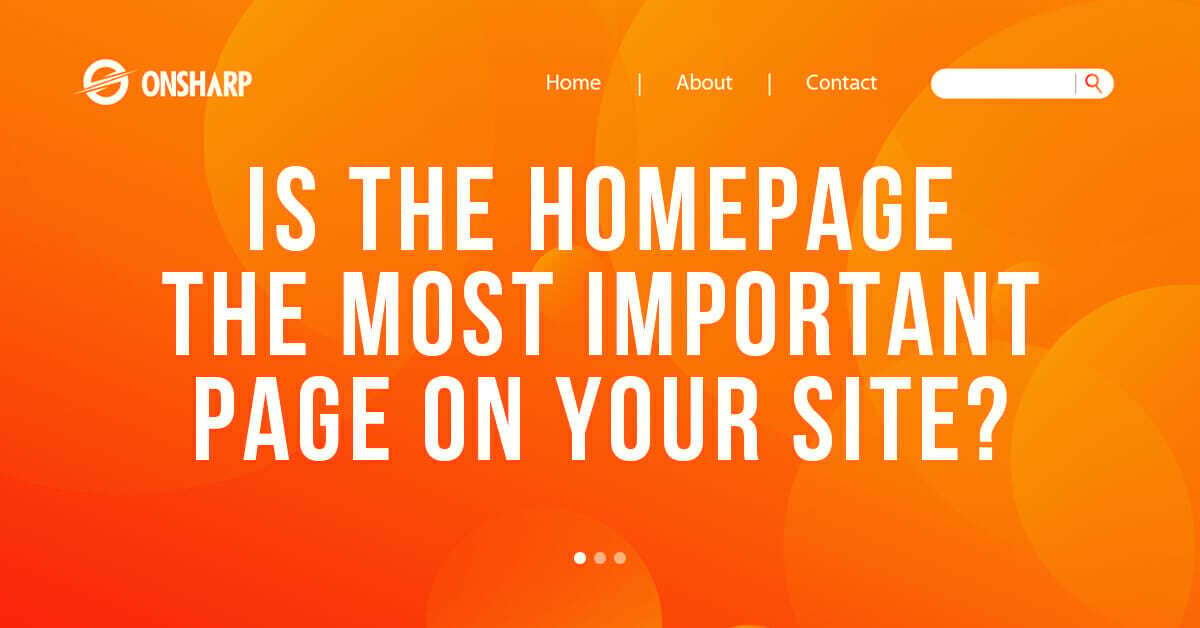2 min read
What Shouldn’t Be On Your Website
Think about your clients’ state of mind when they come to your utilities website. Maybe they need to pay a bill. Maybe they need to report a...
Improve customer satisfaction and increase operational efficiency with a client portal.
Take control of your operations with customized software solutions.
Help your in-house dev team get more done, faster with our Midwest-based experts.
2 min read
McKenzie Johnson : May 09, 2023

When it comes to building a website for your business, it’s easy to become fixated on the homepage. You assume it’s the first page that visitors see when they come to your website, so it’s often the page that you spend the most time perfecting.
But is the homepage really the most important page on your website? We don’t think so!
While the homepage is important, it’s not the be-all and end-all of your website.
One of the main reasons why the homepage is not necessarily the most important page on your website is that it’s too general. When visitors land on your homepage, they’re typically looking for a high-level overview of your business and what you do. However, you don’t have the space to get into all your products and services. Instead, your homepage needs to be like the front page of a newspaper, enticing visitors to dive deeper into your website and explore what you have to offer.
Focusing solely on the homepage can result in a lack of depth and substance in other areas of your website, which are equally (if not more) important for engaging potential customers.
Contrary to popular belief, most new visitors don’t begin their browsing journey on a website’s homepage.
Another reason why the homepage is not necessarily the most important page on your website is that most new visitors don’t start there. In fact, visitors are more likely to land on a specific page, such as a blog post or a product page, that’s relevant to their search. As a result, it’s essential to make sure that all your pages provide value and cater to your specific user persona.
Developing a user-centered approach to web design means prioritizing the creation of informative and engaging sub-pages that addresses your audience’s pain points and helps them find the solutions they seek.
When it comes to conversions, the homepage is also not the most important page. While the homepage may be where visitors start, it’s not where they convert. The homepage needs to cater to a lot of different audiences, whereas sub-pages can focus on specific products or services. By creating targeted landing pages with clear calls-to-action, you can improve your website’s conversion rates and turn visitors into customers.
To create a successful website, you need to focus on all your pages and ensure that they provide value and cater to your audience’s needs. This means creating targeted landing pages with clear calls-to-action, providing useful content that addresses your audience’s pain points, and ensuring that your website is easy to navigate and use.
In conclusion, while the homepage is certainly an important part of your website, it’s not necessarily the most important page. By focusing on all your pages and ensuring that they provide value and cater to your audience’s needs, you can create a successful website that drives conversions and helps your business grow.
Instead of fixating solely on your homepage, remember to invest time and resources into developing all pages on your website, optimizing them for both user experience and search engine visibility. This holistic approach will set your website up for success, generating leads and ultimately contributing to your bottom line.

2 min read
Think about your clients’ state of mind when they come to your utilities website. Maybe they need to pay a bill. Maybe they need to report a...

2 min read
In today’s technological world, your construction company needs a sharp website. It’s where potential clients will first interact with your...

4 min read
Navigation Tips for Utility Companies Keep it Light & Easy When it comes to website navigation, little details make a huge impact on...